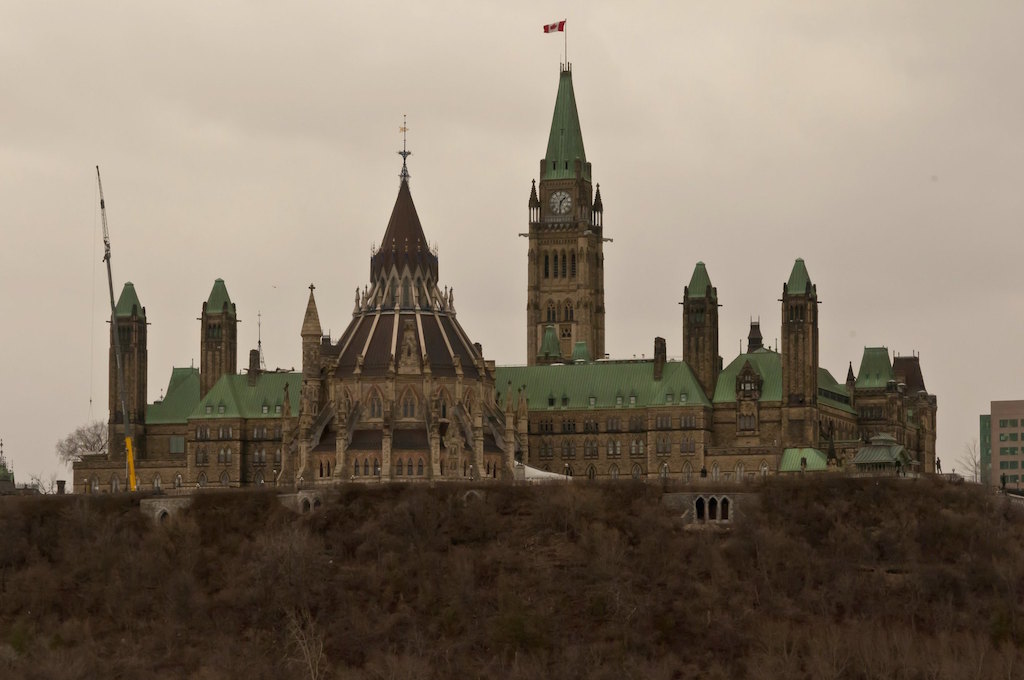Canada’s election comes at a time when democracies around the world are being eroded and destabilized by a tsunami of social, political, economic and environmental challenges, all ultimately linked to an explosive growth in inequality, economic insecurity and debt.
But while the world cries out for far-reaching, even radical, changes requiring high levels of social solidarity, our electoral campaigns revolve around modest proposals, misleading and superficial debates and endless subliminal messages casting all “other politicians” as corrupt charlatans.
And once the election is over, the constraints on effective action by even the most well-intentioned new government will prove even narrower — given the weight of accumulated debts, the power of corporate lobbies, the unpredictability of today’s global markets, the intensity of competitive pressures, the scale of accumulated social and infrastructural deficits and the desperately low esteem in which most citizens now hold their public institutions and public servants.
And so each election sets the stage for more disappointment, more cynicism, more anger and an ever-greater likelihood that future electorates will be beguiled by some tough-talking — or smooth-talking — “saviour,” promising to break decisively with the past and “to make country great again,” or to announce that it “is back.”
Sadly, the world has been here before, and the lessons of that past are sobering.
In the 1920s, as global capital markets were increasingly deregulated, debt mountains grew into the heavens, and economic and social insecurity exploded, along with income inequality and economic conflicts between nations, until eventually the weight of the accumulated debts crushed the world’s real economies and ushered in a depression, a period of extreme political polarization — and eventually, a cataclysmic war.
And although history may not necessarily repeat itself, we all need to understand that the world is now ominously heading in that same direction.
Financial markets are in deep disarray, debts have increased dramatically since the global meltdown of 2008, and efforts to keep interest rates from falling ever deeper into negative territory, or to keep income — and especially wealth — inequality from escalating further, are all failing — with ominous implications.
These markets are now riven by massive contradiction. A leading wealth management fund recently estimated that “global investors” are sitting on “more than $5 trillion dollars in cash,” because they cannot identify desirable investment opportunities at acceptable levels of risk. And just a few weeks ago, Mark Carney, governor of the Bank of England, delivered a paper in the U.S., arguing that the U.S. dollar is no longer credible as the world’s reserve currency. It’s hard to imagine a louder, more ominous canary in any coal mine.
As in the 1920s, this financial turmoil is reflected in ever more turbulent political realities, as disaffected electorates lose confidence in the secular state and increasingly seek refuge in religious, or ethnic, identities; and as beleaguered states seek to ease their domestic economic problems at the expense of their erstwhile trading partners, or by creating new enemies to justify ever more military spending — or even war.
Meanwhile the climate crisis is careening out of control, overwhelming our puny defences and our half-hearted, often disingenuous, efforts to arrest its progress.
The world stands at a crossroads — or maybe even an abyss. States must find a way of addressing these challenges in a collective and coherent manner. Even calls for “Green New Deals,” or dramatic economic and financial reforms at the national level, are no longer ambitious enough. While such initiatives are surely needed, they cannot hope to succeed except as parts of an international cooperative effort, but that seems less likely with each passing day.
Realists will argue that such far-reaching cooperation is impossible today, but they forget that changing circumstances will always alter the limits of what is politically possible. And circumstances are certainly changing!
And right now, there is no doubt that the appetite for new, more effective and equitable global rules and institutions is growing, even in some unexpected quarters like the Bank of England.
Let us hope that despite the noise of our hyper-partisan electoral process, many Canadian citizens will have the wisdom to reward those candidates who are willing to address those challenges.
Robert Kuttner, renowned author of Can Democracy Survive Global Capitalism? and The Stakes: 2020 and the Future of American Democracy will speak to these issues in a keynote address at a Group of 78 conference on “Global Markets, Inequality and the Future of Democracy” scheduled for September 27 to 28 at the University of Ottawa.
Manfred Bienefeld is professor emeritus at Carleton University’s School of Public Policy and Administration. He retired in 2012 after a long career in international development and public policy.
Image: QUOI Media Group/Flickr




